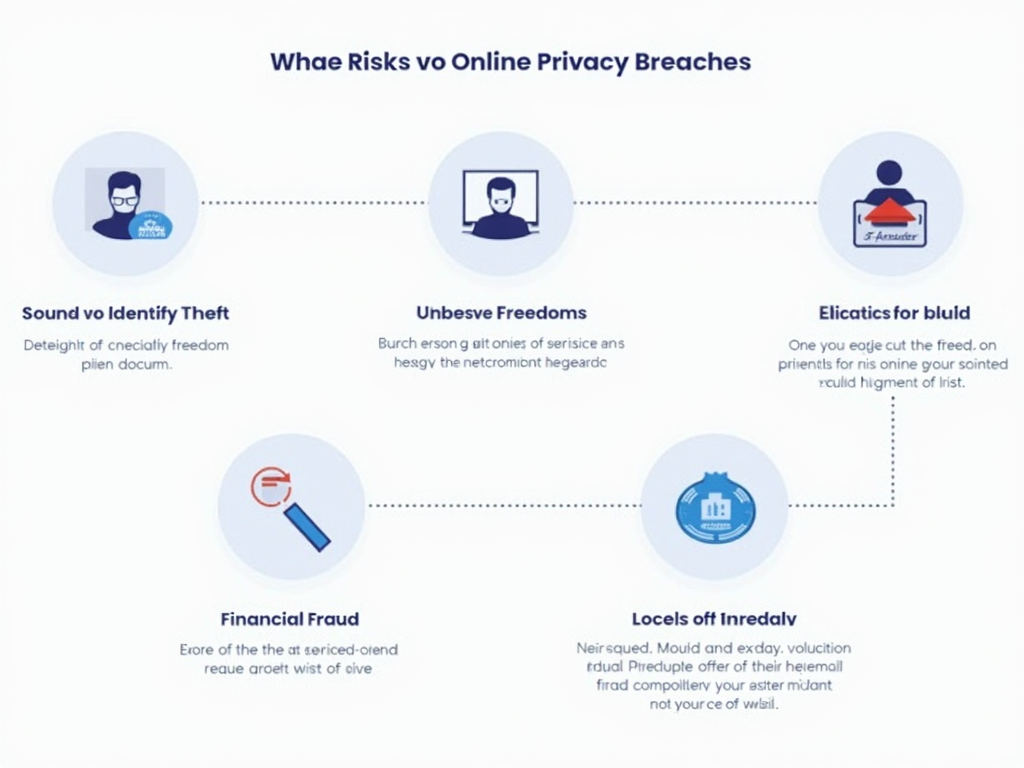Why Online Privacy Matters in 2024
In 2024, the digital landscape is more complex and interconnected than ever before. With the rapid advancement of technology, our personal data is constantly being collected, stored, and sometimes misused. This makes online privacy a critical concern for individuals worldwide. From social media platforms to online shopping, our personal information is at risk of being exposed to unauthorized entities. This article delves into why online privacy matters in 2024, highlights some of the top tools available for protection, and provides a step-by-step guide on using Incogni to delete personal data from the internet.
Why Online Privacy Matters in 2024
The importance of online privacy cannot be overstated in today's digital age. Every time we browse the internet, use social media, or make an online purchase, we leave behind a trail of personal data. This data can include our names, addresses, browsing habits, and even financial information. While this data collection can enhance user experience and provide personalized services, it also poses significant risks.
One of the primary concerns is the potential for data breaches. Cybercriminals are constantly seeking ways to exploit vulnerabilities in systems to gain access to personal information. Once obtained, this data can be used for identity theft, financial fraud, or even sold on the dark web. In 2024, with the increasing sophistication of cyber attacks, the risk of data breaches is higher than ever.
Moreover, the rise of artificial intelligence and machine learning has introduced new challenges to online privacy. These technologies can analyze vast amounts of data to infer sensitive information about individuals, even if that information was not explicitly shared. For example, AI algorithms can predict a person's political affiliation, sexual orientation, or health conditions based on their online behavior. This level of intrusion into personal lives is alarming and underscores the need for robust privacy protections.
Another reason why online privacy matters is the potential for government surveillance. In many countries, governments have the capability to monitor online activities, often under the guise of national security. While this may be necessary in some cases, it can also lead to abuses of power and violations of individual rights. The balance between security and privacy is a delicate one, and it is crucial for individuals to be aware of their rights and the extent of government surveillance.
Furthermore, the lack of control over personal data is a significant concern. Once your information is online, it can be difficult to remove or control who has access to it. This can lead to situations where your data is used in ways you never intended or consented to. For instance, social media platforms often use algorithms to analyze your behavior and preferences, which can then be used to influence your decisions, from what products you buy to what political views you hold. This manipulation can have profound effects on society, as seen in various elections and referendums where data analytics played a pivotal role.
The commodification of personal data has also created a multi-billion dollar industry. Data brokers collect and sell personal information to advertisers, marketers, and even political campaigns. This not only invades your privacy but also turns you into a product without your explicit consent. In 2024, with the advent of the Internet of Things (IoT), smart devices are constantly collecting data about your habits and preferences. While this can lead to more personalized experiences, it also means that your home is no longer a private sanctuary but a data collection hub.
For a deeper understanding of how personal data is used to predict and influence behavior, consider reading "The Age of Surveillance Capitalism" by Shoshana Zuboff, a professor at Harvard Business School. Learn more about surveillance capitalism from Harvard Business School.

Top Online Privacy Tools for 2024
To combat these privacy risks, a variety of tools and technologies have been developed to help individuals protect their personal information online. Here are some of the top online privacy tools for 2024:
-
Virtual Private Networks (VPNs): VPNs encrypt your internet traffic and hide your IP address, making it difficult for third parties to track your online activities. They are particularly useful when using public Wi-Fi networks, which are often unsecured.
-
Password Managers: These tools help you generate and store strong, unique passwords for all your online accounts. By using a password manager, you can avoid the common mistake of reusing passwords across multiple sites, which can lead to widespread security breaches if one account is compromised.
-
Encrypted Messaging Apps: Apps like Signal and Telegram offer end-to-end encryption for your messages, ensuring that only you and the recipient can read them. This is crucial for protecting sensitive communications from interception.
-
Privacy-Focused Browsers: Browsers such as Brave and Tor are designed with privacy in mind. They block trackers, ads, and other elements that can compromise your privacy while browsing the web.
-
Data Removal Services: Tools like Incogni help you remove your personal data from data brokers and other online databases. These services send requests on your behalf to have your information deleted, reducing your digital footprint.
In addition to these tools, consider using:
-
Ad Blockers: These tools prevent ads from loading on web pages, which not only improves browsing speed but also reduces the amount of data collected by advertisers.
-
Two-Factor Authentication (2FA): Adding an extra layer of security to your accounts, 2FA requires a second form of verification, such as a code sent to your phone, in addition to your password.
-
Privacy-Focused Search Engines: Search engines like DuckDuckGo do not track your searches or store your personal information, providing a more private alternative to mainstream search engines.
-
Secure Email Services: Providers like ProtonMail offer end-to-end encryption for your emails, ensuring that only you and the recipient can read the messages.
By incorporating these tools into your digital routine, you can create a more secure and private online environment. For more information on data brokers and their practices, refer to the Federal Trade Commission's report, "Data Brokers: A Call for Transparency and Accountability." Read the FTC's report on data brokers.

How to Set Up Incogni to Delete Personal Data
Incogni is a powerful tool for anyone looking to take control of their online privacy. It automates the process of requesting the removal of your personal data from data brokers, which are companies that collect and sell personal information. Here's a step-by-step guide on how to set up Incogni:
-
Sign Up for an Account: Visit the Incogni website and create an account. You'll need to provide some basic information, such as your name and email address.
-
Provide Necessary Information: To effectively remove your data, Incogni needs to know what information to look for. You'll be asked to provide details such as your full name, address, and any other identifying information that data brokers might have. It's important to be as comprehensive as possible, including previous addresses, aliases, or any other information that could be associated with your identity.
-
Authorize Data Removal Requests: Incogni will use the information you provide to send data removal requests to various data brokers on your behalf. You may need to authorize these requests, depending on the broker's requirements.
-
Monitor Progress: Once the requests are sent, you can monitor the progress through the Incogni dashboard. The dashboard will show the status of each request, including whether it has been accepted, pending, or denied.
-
Receive Updates: Incogni will keep you informed about the status of your data removal requests. If a broker denies a request, Incogni may provide options for further action.
It's worth noting that data removal is an ongoing process. New data brokers emerge, and existing ones may re-collect your information over time. Therefore, it's advisable to regularly check and update your Incogni account to maintain your privacy. Incogni also offers a feature to monitor your email for any data breach notifications. If your email is found in a breach, Incogni can help you take steps to secure your accounts and remove any compromised data.
Personal Insights
As someone who has been navigating the digital world for years, I've come to realize the importance of online privacy. There have been instances where I've received targeted ads based on my browsing history, which, while sometimes convenient, also felt invasive. On a more serious note, I've had friends who experienced identity theft, which was a wake-up call for me to take my online privacy more seriously.
Using tools like VPNs and password managers has given me peace of mind. Knowing that my internet traffic is encrypted and my passwords are secure makes me feel more in control of my digital life. Additionally, services like Incogni have been instrumental in reducing my digital footprint. It's reassuring to know that my personal data isn't floating around for anyone to access.
One of the most eye-opening experiences I've had regarding online privacy was when I discovered how much information data brokers had about me. Through services like Incogni, I was able to see the extent of my digital footprint, which included not only my current address but also past residences, phone numbers, and even relatives' information. Taking action to remove this data was empowering. It felt like reclaiming a part of my privacy that I didn't even realize I had lost. Since then, I've been more mindful of the information I share online and the permissions I grant to apps and websites.
I also started to see the extent of my digital footprint, which included not only my current address but also past residences, phone numbers, and even relatives' information. Taking action to remove this data was empowering. It felt like reclaiming a part of my privacy that I didn't even realize I had lost. Since then, I've been more mindful of the information I share online and the permissions I grant to apps and websites.
I also make it a point to educate friends and family about the importance of online privacy. Many people are unaware of the risks and the tools available to protect themselves. By sharing my experiences and knowledge, I hope to help others take control of their digital lives. For a broader perspective on how online privacy impacts human rights, consider reading "Privacy and Human Rights" by Amnesty International. Explore Amnesty International's perspective on privacy and human rights.

Summary
In conclusion, online privacy is a critical issue in 2024, with significant implications for personal security and freedom. By understanding the risks and utilizing tools like VPNs, password managers, and data removal services such as Incogni, individuals can take proactive steps to protect their personal information. As technology continues to evolve, staying informed and vigilant about online privacy will remain essential.